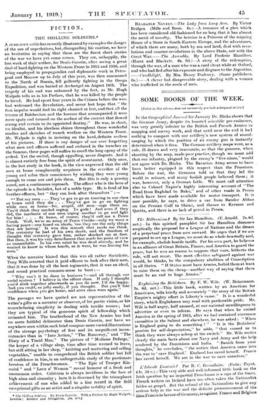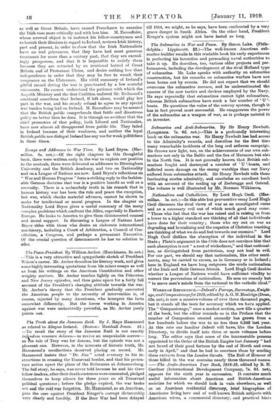L' Irlande Enticatte? Par It. C. Escouflairc. (Patio: rapt. 4
fr. 50 e.),--This very able and well-informed little book on the Irish question by an impartial Frenehman is a sign of the times. French writers on Ireland have too often takal the Nationalist fables as gospel. But the refusal of the Nationalists to give any serious help in the war and the definite pronouncement of the Sian lenient in favourer Germany, as against France and Belgium
as well as Great Britain, have caused Frenchmen to examine the Irish case more critically and with less bias. M. Eseouflaire, whose avowed object is to instruct his fellow.colmtrymen and to banish their allusions in regard to Ireland, reviews Irish history, past and present, in order to show that the Irish Nationalists have no real grievances, that they have had most generous treatment for snore than a century past, that they are exceed- ingly prosperous, and that it is impossible to satisfy them because they are actuated by an irrational hatred of Great Britain and of Protestant Ulster, and desire nothing less than independence in order that they may be free to wreak their vengeance on the Ulstermen. His vivid summary of Ireland's pitiful record during the war is punctuated by a few scornful comments. He cannot understand the patience with which the Asquith Ministry and the first Coalition endured Mr. Redmond's continual assertions that Ireland, if left alone, would play her part in the war, and his steady refusal to agree to any special war burden being laid on Ireland. M. Ese,ouflaire may be aesured that the British public comprehends that futile and disesteems policy no better than he does. It is through no accident that the chief promoters of that policy, both Liberal and. Nationalist, have now almost all disappeared from public life. They failed in Ireland because of their weakness, and neither the loyal British public nor disloyal Ireland has any use for weak politicians In these tines.



































 Previous page
Previous page